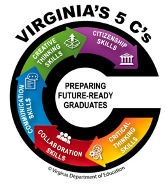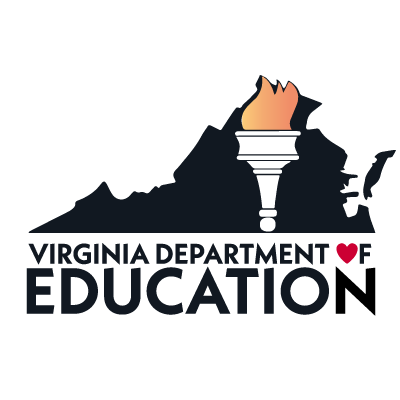Promoting Life Skills and Inclusion with Classroom Routines and Procedures: Part 2
Click here to read this issue for educators
By Nick Kier, Daria Lorio-Barsten, Kara McCulloch and Christine Peterson
Read the Administrator’s Corner below
——————————————————
Responsive School Restarting Considerations for Administrators
By Cathy Buyrn, M.Ed.
As states and school divisions begin to return to teaching and learning either virtually or in person, administrators need to have a responsive plan for addressing challenges in real time. Hopefully, school leaders have established self-care routines for themselves so that they are equipped to support the school community as we all return to a “new normal.” Students, families, and staff will bring a variety of emotions and fears as teaching and learning resumes. School leaders need to model empathy when communicating with stakeholders and facilitate conversations about equity, flexibility, and safety.
The Virginia Department of Education (VDOE) has provided guidance in Recover, Redesign, and Restart 2020: A Comprehensive Plan that Moves Virginia Learners and Educators Forward, placing equity at the center of all efforts to return to teaching and learning. While school leaders need to address learning gaps and plan for equitable academic instruction, the VDOE Accreditation Task Force is encouraging a primary emphasis on the social-emotional well-being for all students and staff. Schools should consider implementing strategies to encourage engagement, create a sense of routine in a potentially new atmosphere, and develop or create a sense of connectedness between students and their learning. (VDOE, 2020, p. 130).
Attention to equity and the social-emotional well-being of students and staff must be an ongoing focus as conditions evolve, needs change, illnesses occur, and adjustments inevitably have to be made to the teaching and learning process.
The established social-emotional core competencies of self-awareness, self-management, social awareness, and relationship skills will help set the stage for responsible decision-making (Collaborative for Academic, Social, and Emotional Learning [CASEL], 2020) as schools restart in the fall. Beyond that school leaders, staff, students, and families will likely face rapid cycles of responsible decision-making as the year progresses.
Responsible decision-making, as defined by CASEL (2017), is “The ability to make constructive choices about personal behavior and social interactions based on ethical standards, safety concerns, and social norms. The realistic evaluation of consequences of various actions, and a consideration of the well-being of oneself and others” (p. 2). Cycles of decision-making include “identifying problems, analyzing situations, solving problems, evaluating, reflecting, and ethical responsibility” (CASEL, 2017, p. 2).
Personal behaviors and social interactions regarding safety and new social norms will be part of the landscape as we return to teaching and learning. The CASEL (2017) social-emotional core competencies align with Virginia’s Profile of a Graduate and the 5C’s. Developing these competencies during the 2020-2021 school year will bring us all closer to the goal that “students in every grade will experience a new approach to instruction that focuses on key skills for success in a modern world” (VDOE, 2019, para. 1).

These new challenges present opportunities for us to learn together as we “recover, restart, and redesign” (VDOE, 2020, p. 1). School leaders will have to be the lead learners (Fullan, 2001), constantly looking backwards, across the current landscape, and to the future. Fullan’s Leadership Framework, including establishing and sustaining a context of enthusiasm, hope, and energy, is as relevant for the 2020-2021 school year as it was in 2001. Establishing a context of enthusiasm, hope, and energy is critical in order for educational leaders to pursue the current moral purpose driven by equity, social-emotional learning, and safety. Balancing coherence making, an understanding of change, relationships, and shared knowledge (Fullan, 2001) will help school leaders navigate the challenges of the 2020-2021 school year.
As a starting point for school leaders, staff, and adults, self-reflection and self-assessment of their own social-emotional competencies is critical. To that end, CASEL (2017) offers a self-reflection tool that can be used to engage in social-emotional reflection. A rich collection of other resources and tools may be accessed on the CASEL website, including new resources focused on the COVID-19 crisis and racial inequity.
References
Collaborative for Academic, Social, and Emotional Learning. (2017). Social and emotional learning competencies. https://casel.org/wp-content/uploads/2019/12/CASEL-Competencies.pdf
Collaborative for Academic, Social, and Emotional Learning. (2020). An initial guide to leveraging the power of social and emotional learning as you prepare to reopen and renew your school community.https://casel.org/wp-content/uploads/2020/05/CASEL_Leveraging-SEL-as-You-Prepare-to-Reopen-and-Renew.pdf
Commonwealth of Virginia Department of Education. (2020). Recover, redesign, restart 2020: A comprehensive plan that moves Virginia learners and educators forward. Virginia Department of Education. http://doe.virginia.gov/support/health_medical/covid-19/recover-redesign-restart-2020.pdf
Fullan, M. (2001). Leading in a culture of change. Jossey-Bass.
Virginia Department of Education. (2019). Virginia is for learners. http://www.virginiaisforlearners.virginia.gov/media-library/




